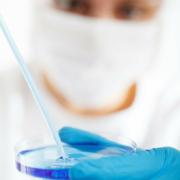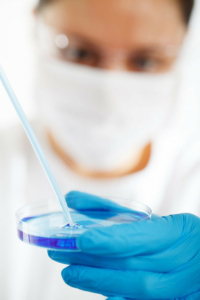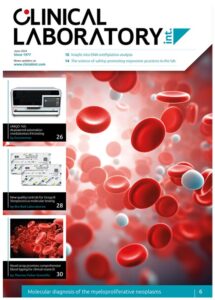BioGenes and Alphalyse collaborate to optimize ELISA reagent characterization for biomanufacturing
BioGenes and Alphalyse have been active in the field of Host Cell Protein (HCP) detection for many years and have now partnered up to offer their respective methods to biologics developers for optimal outcomes.
Berlin-based BioGenes focusses on challenging and customized antibody and immunoassay development projects, with a particular focus on HCP ELISAs and related 2D gel analytics, for quality control, diagnostics, and the development and testing of new biological therapeutics. Alphalyse is a specialist contract research organization with expertise in HCP coverage analysis by Liquid Chromatography (LC) – Mass Spectrometry (MS) to support biopharmaceutical companies in their process development and manufacturing of patient-safe products, such as mAbs, vaccines, recombinant proteins, and cell and gene therapies.
HCPs stem from the production cell line used for biological product manufacturing. Defined as process-related drug impurities, they can negatively influence a biological drug’s quality, safety, and efficacy. Naturally, the accurate detection of HCP impurities heavily depends on the establishment of reliable and robust methods for HCP measurement.
The HCP ELISA is the predominant assay for continuous HCP monitoring, and ELISA reagent characterization is vital for determining the assay’s suitability for HCP detection and quantification. The most important parameters are a sufficient total HCP coverage, the demonstration of HCP log reduction, and a high level of assay accuracy. As recommended by current guidelines, the coverage determination should be performed using orthogonal methods.
Biologics developers have an increasing need for simultaneous HCP measurement and identification to improve HCP risk assessment: the ELISA is used for antibody-dependent measurement, and LC-MS for HCP identification. BioGenes and Alphalyse will provide their combined know-how and experience in the HCP field to support the combined use of their respective methods. The combination of BioGenes’ more than 20 years in HCP ELISA development and Alphalyse’s experience in LC-MS for HCP monitoring combined with the orthogonal methods IAC-2D DIGE and ELISA-MS for reagent characterization will enable a solid HCP surveillance strategy including quantification and identification of relevant HCPs.
For biologics developers, this means maximized certainty regarding HCP levels and improved HCP documentation for approval by regulatory entities.
“We are very pleased to be working with Alphalyse, and believe that we can achieve great results from a combined strategy,” said Dr. Alexander Knoll, CEO of BioGenes. ”Together, we can make it possible for customers to rely on orthogonal methods for their drug development and increase their chances for successful market authorization. At the same time, we will be able to improve drug efficacy, and thus patient safety.”
Thomas Kofoed, CEO of Alphalyse, added: “Both companies have been very successful with their respective approaches for years. In this respect, they complement each other very well. It is exciting to see how the combination of both our methods will hopefully change the future of HCP monitoring and become the new standard in drug development processes.”




